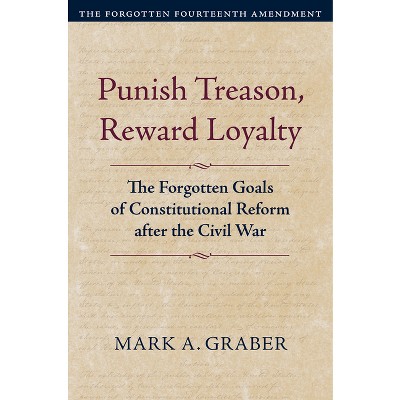Sponsored

From the Courtroom to the Boardroom - by Deena Varner
In Stock
Sponsored
About this item
Highlights
- The era of mass incarceration has been associated with the idea of "law and order," referring to the carceral regime in which politicians exploited public anxieties over crime and funneled resources into policing and prisons.
- Author(s): Deena Varner
- 268 Pages
- Social Science, Penology
Description
About the Book
"The era of mass incarceration has been associated with the idea of "law and order," referring to the carceral regime in which politicians exploited public anxieties over crime and funneled resources into policing and prisons. As important as this system was and remains, there has been a shift in recent years shaped by neoliberalism-the political, economic, and sociocultural program that has supplanted liberal democratic legal frameworks, subordinating them to operations of the market and mandating that private entities intervene in the creation, interpretation, and enforcement of law. While courts and legislatures play a significant role in shaping legal personhood in the United States, private, profit-driven institutions are increasingly responsible for determining the post-sentence consequences that people with criminal convictions face. The result has been a move from the courtroom to the boardroom, from a law-and-order society to a policy-and-order society. From the Courtroom to the Boardroom is an interdisciplinary cultural studies project that examines the role of the criminal justice system in implementing neoliberal restructuring in the United States, including the partial transfer of quasi-judicial authority to employers, landlords, lenders, social media companies, and other businesses. Deena Varner examines the way the consumer background report industry has privatized the surveillance and punishment of individuals, conflating crime with bad credit and eviction history. She looks at how Airbnb's 2018 policy of banning people convicted of crimes is an example of the way corporate entities are increasingly vested with the authority to determine things like the seriousness or severity of crimes. Varner also examines the phenomenon of "cancel culture," arguing that this is best understood not as an example of the culture wars but rather of the way judicial power has been transferred from the state to the individual judgments of citizens-a partial return to what Foucault described as the punitive model of infamy"--Book Synopsis
The era of mass incarceration has been associated with the idea of "law and order," referring to the carceral regime in which politicians exploited public anxieties over crime and funneled resources into policing and prisons. As important as this system has been and remains to be, there has been a shift in recent years shaped by neoliberalism--the political, economic, and sociocultural program that has supplanted liberal democratic legal frameworks, subordinating them to operations of the market and mandating that private entities intervene in the creation, interpretation, and enforcement of law. While courts and legislatures play a significant role in shaping legal personhood in the neoliberal United States, private, profit-driven institutions are increasingly responsible for determining the post-sentence consequences that people with criminal convictions face. The result has been a move from the courtroom to the boardroom, from a law-and-order society to a policy-and-order society.
From the Courtroom to the Boardroom is an interdisciplinary cultural studies project that examines the role of the criminal justice system in implementing neoliberal restructuring in the United States, including the partial transfer of quasi-judicial authority to employers, landlords, lenders, social media companies, and other businesses. In this important study, Deena Varner examines the way the consumer background report industry has privatized the surveillance and punishment of individuals, conflating crime with bad credit and eviction history. She positions Airbnb's 2018 policy of banning people convicted of crimes as an example of the way corporate entities are increasingly vested with the authority to determine things like the seriousness or severity of crimes. Varner also tackles the phenomenon of "cancel culture," arguing that this is best understood not as a feature of the culture wars but rather as a partial return to what Foucault described as the punitive model of infamy, in which the responsibility for punishing has been transferred from the state to individuals.
Review Quotes
"Varner offers an illuminating and timely study of how neoliberalism has given rise to the corporation as the ultimate arbiter of citizenship. Varner deftly traces the roots of our present moment in which companies like Airbnb have the power to condemn formerly incarcerated people to a kind of social death, taking away the basic privileges that comprise modern citizenship in an era of the gig economy and surveillance capitalism. This book makes lucid, highly readable, and important interventions upon ongoing debates in American studies, criminology, critical race studies, and legal studies.It testifies to the emergence of a vital scholarly voice that can help us see and understand the often-hidden methods of institutional and digital control that define today's United States."--Jeffrey Ian Ross, author of Key Issues in Corrections and An Introduction to Political Crime
"The violence of the carceral state is both concentrated and expansive. Jails, prisons, and police shorten lives, sometimes spectacularly. The quotidian power, on the other hand, reaches deeply into the social body and can be more difficult to identify and document. Thankfully, From the Courtroom to the Boardroom offers the kind of capacious and rigorous analysis needed to meet a moment where the carceral capacities of the state have both intensified and diffused into various individuals, institutions, and cultural practices. In rich and theoretically driven writing, Deena Varner argues that creditors, landlords, HR compliance officers, employers, and companies like Airbnb take on extensive powers of investigation, adjudication, policing, and punishment, often enacting collateral consequences of criminalization and imprisonment outside of the criminal legal system. In the process of such a sprawling deployment of carceral logics and practices, these actors and institutions straddle and explode conventional divisions between public and private or civic and criminal, while also reinforcing and renovating cultural norms of individual justice. This book is urgent reading for both understanding the complex relationship between capitalism and the carceral state and anticipating its ongoing development."--Judah Schept, author of Coal, Cages, Crisis: The Rise of the Prison Economy in Central Appalachia
Shipping details
Return details
Trending Non-Fiction











